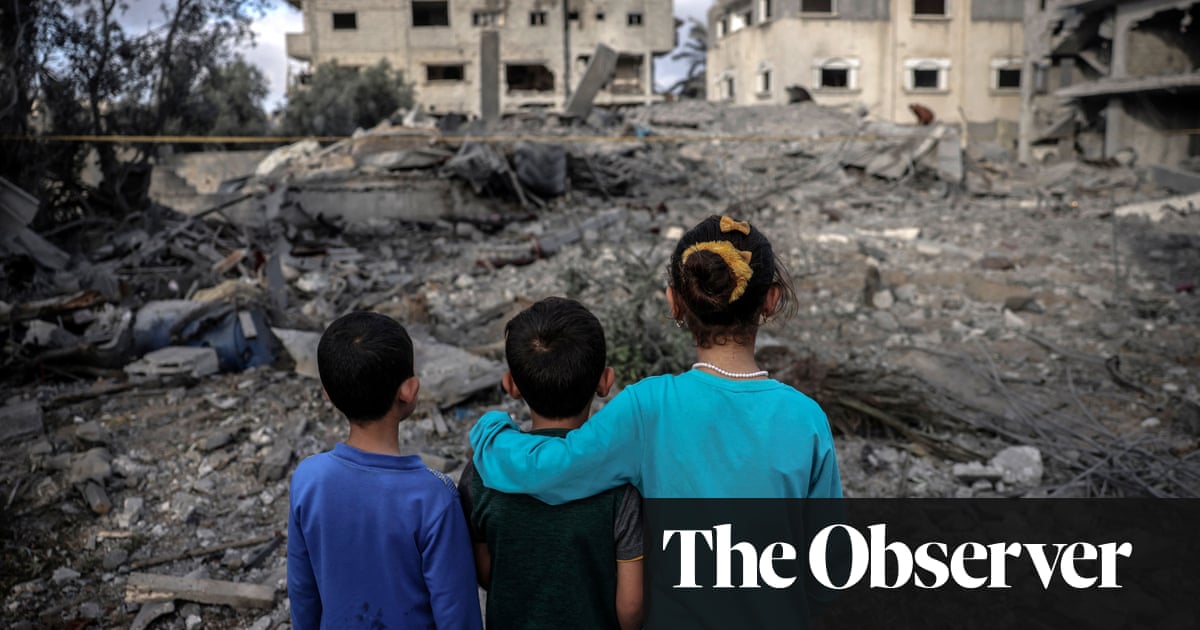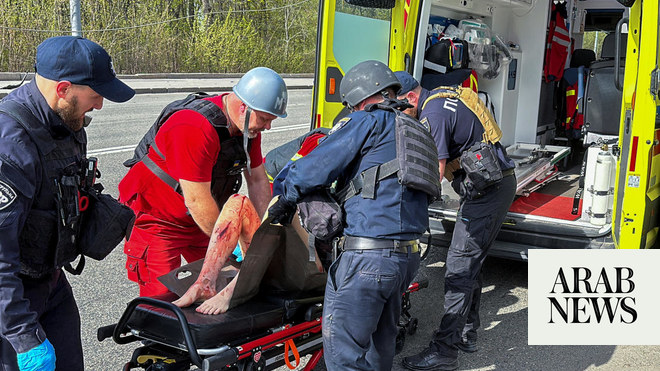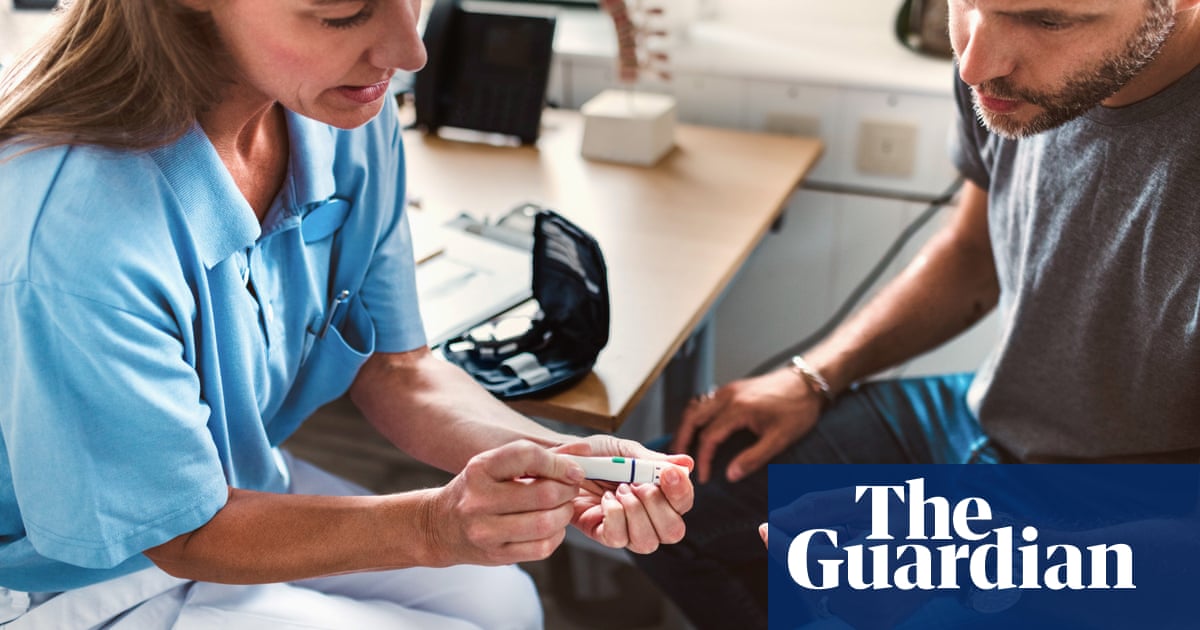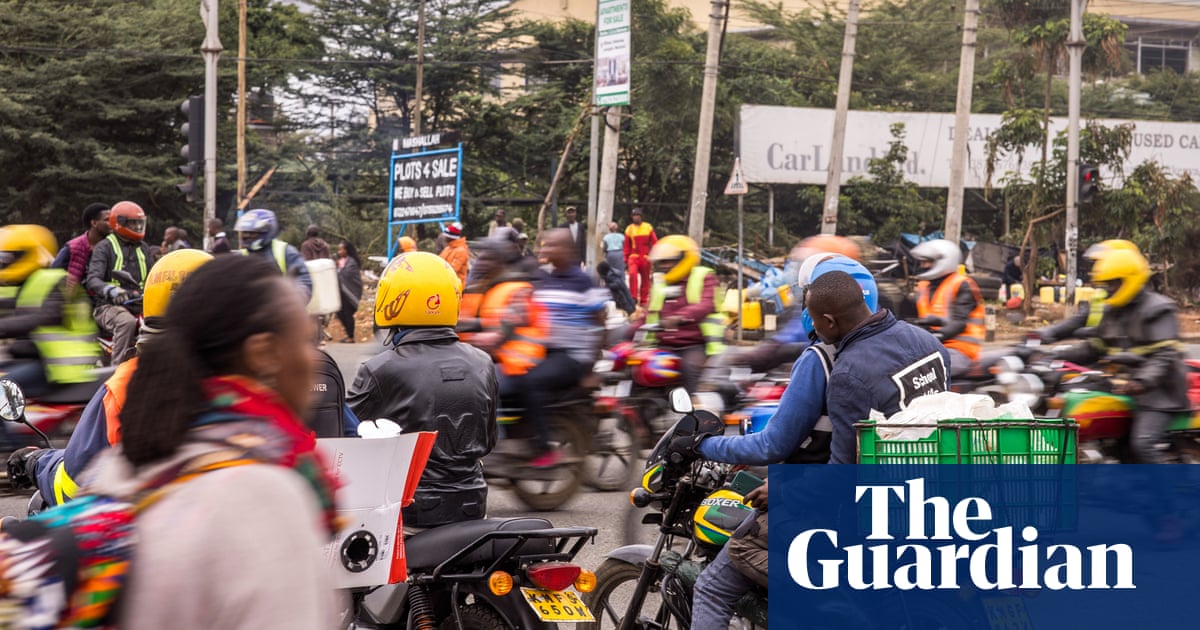
Even before the war in Gaza broke out, people in the besieged Palestinian territory had some of the world’s worst rates of mental illness.
Israel and Egypt’s blockade of the Mediterranean strip is now 17 years old; a generation has grown up knowing nothing but cyclical escalation, a dire lack of public services and next to no freedom of movement. Research published by Save the Children in 2022 found that four out of five children in Gaza said they live with depression, grief and fear, and three in five were self harming.
Since 7 October, the charity found that there has – unsurprisingly – been a dramatic deterioration in children’s mental health. “Children here have seen everything,” one father, Wasseem, told Save the Children researchers. “They’ve seen the bombs, the deaths, the bodies … We can’t pretend to them any more. Now, my son can even tell what types of explosives are falling.”
According to Dr Samah Jabr, chair of the Hamas-run Palestinian ministry of health’s mental health unit, experiencing such horrors does not easily translate into the clinical definition of, or treatment for, post-traumatic stress disorder (PTSD). Tools for evaluating depression, such as the Beck inventory, do not account for circumstances in which anguish is a reasonable response.
“If western society considers a car accident traumatic, can we use the same word for the level of atrocity happening in Gaza?” she said in an interview with the Observer. “The clinical description of PTSD captures the experience of, for example, a soldier who goes back home … Trauma in Palestine is collective and continuous. PTSD is when your mind is stuck in a traumatic loop. In Palestine, the loop is reality. The threat is still there. Hypervigilance, avoidance – these symptoms of PTSD are unhelpful to the soldier who went home, but for Palestinians, they can save your life. We see this more as ‘chronic’ traumatic stress disorder.”
Jabr, 47, grew up in Israeli-occupied East Jerusalem. Today, she is in charge of mental health provision across East Jerusalem, the West Bank and Gaza. A well-known public speaker and writer on mental health and human rights, she did her first medical degree and clinical rotations during the second intifada, or Palestinian uprising, of the 2000s, which led to an interest in psychiatry and analytic psychotherapy.
“One of the collective punishments imposed by the Israelis was closing the checkpoints, so Palestinian workers became jobless,” she said. “Young men presented with headaches, palpitations, backaches … They were all medically unexplained symptoms and I understood they were psychological.”
Jabr’s has been inspired by the work of the mid-20th century psychiatrist and political philosopher Frantz Fanon. An anti-colonialist from Martinique who joined the Algerian independence movement, Fanon also pioneered the concept of “community psychology” and contributed much to understanding of the psyches of oppressed and occupied peoples.
Jabr said: “I did advanced psychiatry training in the UK, France and the US, but when I came back to Palestine I started to question what I had learned. Much of it was relevant and universal. But in the case of Palestine, political violence and power dynamics are a very important element in understanding mental health problems.”
She believes that where racism and humiliation at checkpoints, Israeli army raids, home demolitions and administrative detention without charge are commonplace, the political reality must change in order for her patients to make a meaningful recovery.
She has trained hundreds of medical professionals in Palestine, as well as in Afghanistan, Libya and Jordan, and often sees up to 30 people a day presenting with personality changes and emotional stress that manifests in physical problems.
“When you are working with someone, for example, whose relationship to Israeli jail is like a revolving door, we can’t stop that. What we can do is provide solidarity, recognition, support, validation,” she said. “I also work a lot with mothers who have lost their children to political violence. One woman from Jericho held on to her grief for a long time and was very depressed, but talking to me about it didn’t really help her; she was tired of expressing her feelings. We organised other mothers to come and see her from Jenin, and they began a friendship. She found a lot of support in that.”
Sumud, an Arabic word that does not have a direct translation but is akin to steadfastness, or resilience, is an important shared political and cultural value for Palestinians, and one that Sabr prioritises in her clinical work.
People’s ability to help themselves never ceases to amaze Jabr. Young people whose childhoods were marred by time in Israeli jails do not necessarily want to come to her clinic, or be stigmatised as “ill”, but what has helped is a grassroots programme in which adult men with experience of prison spend time with the teenagers.
Professional mental health provision is a persistent problem. Jabr has just 34 trained psychiatrists to look after the mental wellbeing of 5 million Palestinians. In Gaza, there were only six public community mental health centres and one inpatient psychiatric hospital before the war. None is functional now.
A study published last year in Middle East Current Psychiatry agreed with Jabr that PTSD and continuous traumatic stress disorder (CTSD) among Palestinians “cannot be changed unless the root of the problem is solved by ending 74 years of living under occupation”.
Justice and solidarity, Jabr thinks, will be important correctives for the damage caused by this unprecedented war. “Giving people who lost their humanity, people were reduced to nothing, giving them their dignity back … Psychologists can’t do that alone. We need responses at state and international level. We need the rest of the world to stand with us.”












